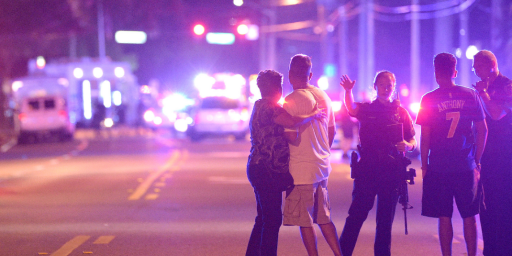Homo Reciprocans in Action?
Brayn Caplan has an interesting post on philanthropy, terrorism, public goods and rent seeking.
What do you do if someone you don’t like tries to give you an expensive present? Homo economicus would happily take it: “It’s not like I signed a contract!” But most people would at least think twice before accepting the gift.
Why is this? My best guess is that (a) Our natural psychological reaction to a favor is gratitude and a desire to reciprocate, and (b) We are rational enough to foresee our reaction and try to avert it. Broadly construed, refusing a gift is a selfish act, because you know that if you take this payment, you will pay it back, even though you don’t have to.
This strikes me as an argument in favor of Homo reciprocans. Homo reciprocans is like Homo economicus (i.e. a self interested actor), but also places value on reciprocity in relationships with others. In the case above, if the person gives you a nice gift, you’ll want to reciprocate. If you give a nice gift, you want the other person to reciprocate as well (the Ultimatum Game is also a good way to see how Homo reciprocans works).
What I found interesting was Caplan’s extension of his initial point to cover terrorist groups that engage not only in terrorism, but in providing what are often considered public goods,
Another interesting case: Eli Berman of UC San Diego observes that terrorism is often bundled with philanthropy. Groups like Hamas don’t just deploy suicide bombers; they also run schools, hospitals, welfare programs, and so on.
Members of these radical religious groups are hardly your typical “bad guys.†They exhibit productive, constructive and noble behaviors: acts of piety, charity and self-sacrifice.
Why do the two come as a package? Berman’s interpretation is that these groups initially attract members by supplying “club goods” – that is, collective benefits for their supporters. Once people enjoy the group’s club goods, it can induce them to sacrifice for the group by threatening to throw them out of the club for free-riding.
The bundling of violence and charity is striking, but I have a slightly different take on it. Philanthropy helps recruit terrorists, but the reason is not that the club ejects free-riders. The reason philanthropy helps is that it makes people feel grateful, which leads to a desire to return the favor. For the most part, people return the favor the cheap way: Not ratting them out to their enemies. But some recipients go further and become terrorists out of gratitude.
I think Caplan has a good observation here. Further, it also points out that we should not waffle on our views of groups like Hamas. We should not let the good that these kinds of groups get in the way of getting rid of these groups, since the good projects really are nothing more than subtle recruiting campaigns.






Your argument in brief: laws against murder even apply to people like Mother Teresa.